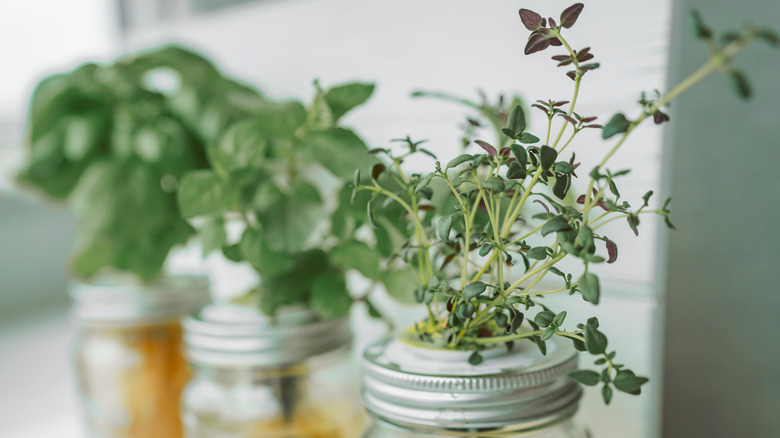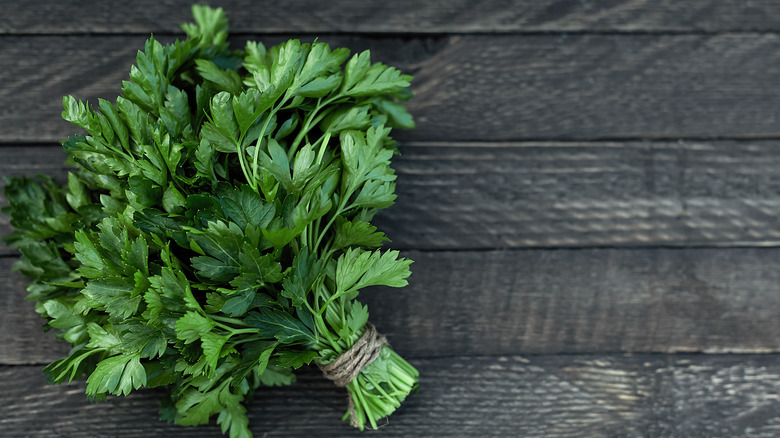How To Refrigerate Herbs For Maximum Flavor
Whether it's basil, rosemary, or even a dash of thyme, there is something magical about using the herbs we've grown ourselves in the kitchen. It makes us feel more connected to the food we're making and ensures that the ingredients we use are the freshest they can be. But while herbs taste the best cut from the garden, not everyone has the time to grow their own. Dried herbs are readily available, and fresh store-bought herbs are always a great option – but they only last for a few days before quickly wilting and losing their vibrancy (via Serious Eats). So many of our favorite home recipes rely on fresh herbs, and all too often they turn into a green pile of goo in the back of the refrigerator before we get the chance to pull out grandma's famous recipe.
However, it is not an impossible battle! There are ways for you to refrigerate your herbs, and not only save them but enrich them.
Storing woody vs. tender herbs in the fridge
Not only is there a right and wrong way to store herbs, but there are also distinctive methods to preserve different kinds of herbs! Before you do anything else, you must organize them. But don't worry, there is an easy way to differentiate herbs: by looking at their stems. Are the stems green and flexible like parsley, basil, or dill? Those are tender herbs! Or are the stems tough like rosemary, lavender, or sage? Those are woody herbs, and you probably won't be chewing on those stems anytime soon (via Serious Eats).
Now that you know the difference between the two kinds of herbs, let's store them properly. According to Food & Wine, after gently washing and drying tender herbs, remove dying stems, trim the bottoms, and place the herbs upright in about an inch of water, then cover them with a plastic bag — exposure to oxygen will speed up the decay process. This will keep them safe from the negative effects of refrigeration. Woody herbs should be stored a bit differently, after cleaning and drying them, wrap them in a damp paper towel, and place them in sealed plastic. This will keep woody herbs alive for about two to three weeks. Using these methods for storing your herbs will invigorate them with flavor, extend their lifespan, and will keep you from throwing out fresh herbs you didn't have time to use.

